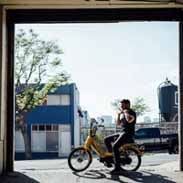The Scientific Revolution – Flashcards
Unlock all answers in this set
Unlock answersquestion
Main Ideas...
answer
-The Scientific Revolution marked the birth of modern science. -Discoveries and inventions helped scientists study the natural world. -The Scientific Revolution had broad effects on society, changing ideas about the physical world, human behavior, and religion.
question
The Big Idea...
answer
-Europeans developed a new way of gaining knowledge, leading to changed the way people thought about the world.
question
The Birth of Modern Science
answer
-The series of events that led to the birth of modern science is called the Scientific Revolution. -Occurred in Europe between about 1540 and 1700. -People began to study the world around them and use logic to explain what they saw
question
Understanding Science
answer
-The word science comes from a Latin word meaning "knowledge" or "understanding". -Science starts with observations, then scientists use logic to identify and explain the facts they have uncovered. -The explanations scientists develop to explain observed facts are called theories.
question
Understanding Science
answer
-Scientists design experiments to test whether their theories are correct. -Scientific knowledge is based on observations, facts, and logical ideas, or theories, about them. -This method of gaining knowledge was uncommon before the Scientific Revolution.
question
Roots of the Revolution
answer
-Many scientific ideas were expressed in ancient times. -Greek thinkers like Aristotle and Ptolemy wrote about astronomy, geography, and logic. -They were rationalist, people who looked at the world in a rational, or reasonable and logical, way.
question
Roots of the Revolution
answer
-Muslims translated works by Greek thinkers into Arabic. Arabic writings were later translated into Latin. -This allowed Europeans to study past rational thought.
question
Roots of the Revolution
answer
-The growth of Humanism during the Renaissance helped bring about the Scientific Revolution. -Humanist artists and writers encouraged study of the natural world. -Alchemy became popular --Experiments involving turning common metals into gold.
question
Discoveries and Inventions
answer
-Columbus sailed west using a map drawn by Ptolemy. -When Columbus reached North America instead of Asia it stunned Europeans because observation of the real world had disproved the teachings of an ancient authority. -Scholars would begin to question the accuracy of other authorities.
question
Advances in Astronomy
answer
-Nicolaus Copernius- Polish astronomer who wrote "On the Revolution of the Celestial Sphere". -Stated that the planets moved around the sun in a circular orbit but never proved his theory. -Inspired fresh thinking about astronomy.
question
Advances in Astronomy
answer
-Tycho Brahe- From Denmark. Charted more than 750 stars. Assisted by Kepler. -Jogannes Kepler- Tried to map the orbits of the planets but realized that they moved in elliptical orbits instead of in a circle.
question
Advances in Astronomy
answer
-Galileo Galilei- Italian scientist who was the first person to study the sky with a telescope. -Discovered mountains and craters on the moon. -Studied how falling objects behave --Mechanics- the study of objects in motion. -First scientist to routinely use experiments to test theories.
question
Sir Isaac Newton
answer
-Published "Principia Mathematica". -Lays the foundations for most of classical mechanics. -In this work Newton described: --Universal gravitation and the three laws of motion. --Showed that the motions of objects on Earth and planets are governed by the same set of natural laws.
question
Sir Isaac Newton
answer
-Newton's Three Laws of motion: --First law: The velocity of a body remains in motion constant unless the body is acted upon by an external force. --Second law: The acceleration A of a body is parallel and directly proportional to the net force F and inversely proportional to the mass m, i.e., F=ma --Third law: The mutual forces of action and reaction between two bodies are equal, opposite and collinear.
question
New Inventions
answer
-1590 -Zacharias Jansen -Dutch lens maker invented simple microscope. -1593 -Galileo invents the thermometer. -1643 -Evangelista Torricelli -Italian scientist invents the barometer which measures air pressure.
question
Effects on Society
answer
-Francis Bacon and Rene Descartes encouraged the use of orderly experiments and clear reasoning. -Ideas helped shape the scientific method which are the main principles of modern science. --Scientific method- step-by-step process for performing experiments and other scientific research.
question
Effects on Society
answer
-The church feared that science would lead people to doubt key elements of their faith. -Catholic leaders tried to force scientists to reject any findings that contradicted church teachings. -Galileo was faced with torture unless he accepted the church's belief that the earth did not move.



